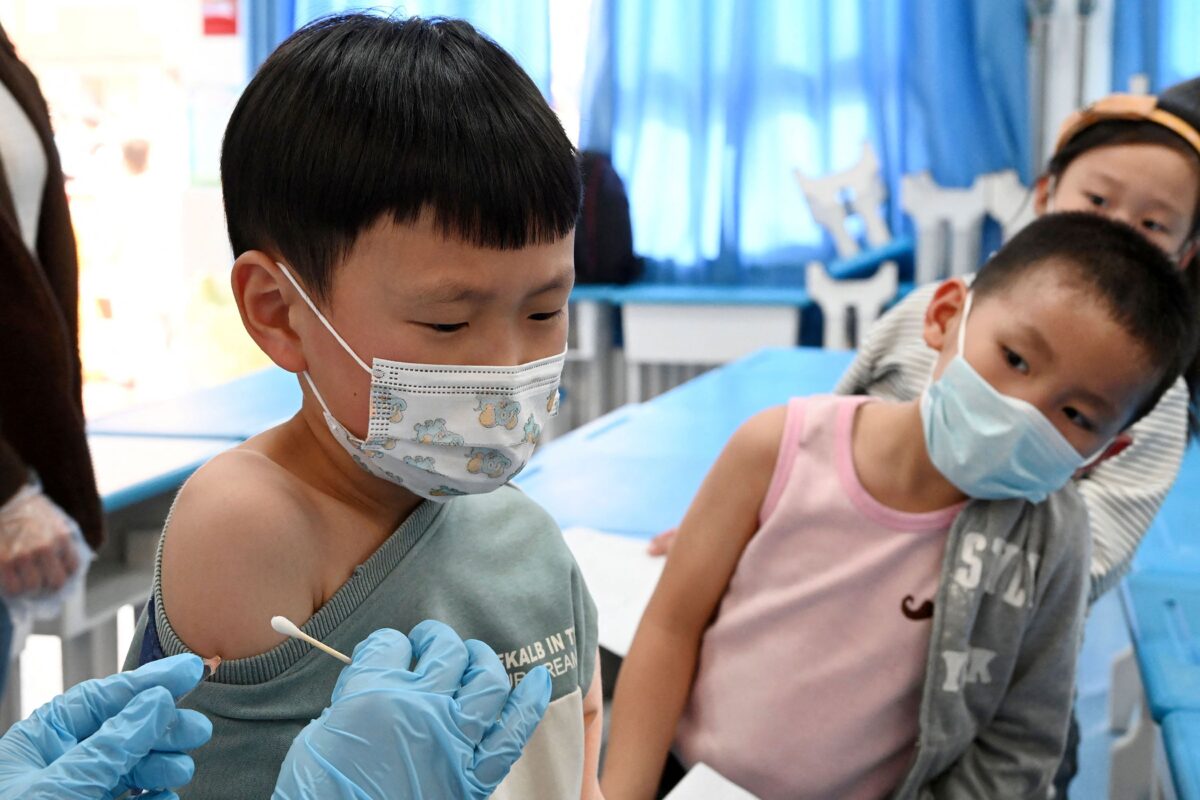


A significantly higher proportion of teenage girls visited hospital emergency rooms for mental health issues amid the COVID-19 pandemic, according to a recent study which also found that visits from boys actually declined during this period.
The July 12 study, published at the JAMA Network, looked at 4.1 million children aged five to 17 years and their mental health emergency department visits. During the second year of the pandemic, such visits among teen girls rose by 22.1 percent. During the pandemic, children were cut off from their school friends and other peers while remaining isolated at home, with some of them facing abusive parents. This amped up pressure on the kids.
“There was an increase in prolonged boarding of youth awaiting inpatient psychiatric care. Interventions are needed to increase inpatient child psychiatry capacity and reduce strain on the acute mental health care system,” it said. The study was conducted by researchers from Harvard Medical School and Boston Children’s Hospital among others.
In an interview with The New York Times, Lindsay Overhage, one of the authors of the study and a doctoral candidate at Harvard Medical School’s Department of Health Care Policy, said that she was “especially concerned” that the increase in emergency room visits was driven by “suicidal thoughts, suicidal behavior, and self-harm.”
In the study, the percentage of boys who made emergency department visits due to mental health issues dropped by nine points, per the outlet.
The study did not clarify the reason why there was a wide gap between teenage boys and girls when it came to ED visits for mental health. Authors speculated that separation from peers, disruption of school, and conflicts at home may have affected girls more.
The pandemic also resulted in a spike in the number of children, teens, and young adults rushed to hospitals due to emergencies related to cannabis use, according to July 13 data published by the Centers for Disease Control and Prevention (CDC).
The issue of children suffering from adverse mental health during the COVID-19 outbreak was raised as a matter of concern during the pandemic itself.
In September 2021, the American Academy of Pediatrics, American Academy of Child and Adolescent Psychiatry, and Children’s Hospital Association issued a joint declaration warning that they have witnessed “soaring rates of mental health challenges” among children and adolescents.
“Rates of childhood mental health concerns and suicide rose steadily between 2010 and 2020, and by 2018, suicide was the second leading cause of death for youth ages 10-24. The pandemic has intensified this crisis: across the country, we have witnessed dramatic increases in Emergency Department visits for all mental health emergencies, including suspected suicide attempts,” it said.
According to experts, the COVID-19 outbreak negatively affected children by disrupting their routines for most of the two years of the pandemic. This includes the loss of school life, not seeing their friends for a long time, and not being able to take part in activities.
At a time when they were supposed to develop deeper interpersonal relationships with their peers, children were stuck in their homes, isolated from friends who usually act as mental support during their age.
There was a public outcry regarding the pandemic and its effects, mainly driven by media and politicians, that had a traumatic impact, especially on children. They were afraid constantly of acquiring the virus and of spreading the disease among family members.
When adults recover more rapidly, children find it harder to come out and reintegrate into normal life following fear-inducing messaging and strict region-wide mandates.
Many teens also suffered financial and food insecurity during the COVID-19 pandemic and had to see their parents lose jobs and struggle financially. Some had to endure abusive parents. All these factors contributed to stressing out children during their growth years.
While the problem of the COVID-19 pandemic affecting teen mental health has gotten attention, a recent Harvard report suggests that teenagers’ mental health is interwoven with that of their parents.
In December, the Harvard team conducted two surveys which found that while 18 percent of teens suffered anxiety, around 20 percent of mothers and 15 percent of fathers reported the same. About 40 percent of the teens were “somewhat worried” about the mental health of one of their parents.
The report pointed out that depression and anxiety among parents were related to the emotional, physical, and academic problems in their children.
A survey published in January by Pew Research showed that four in ten parents with children younger than 18 were “extremely or very worried” that their kids could struggle with depression or anxiety at some point.
Parents ranked the mental health of their children as their number one concern, followed by worries about their kids getting bullied.
What topics would you like to read about? Please let us know at health@epochtimes.nyc
